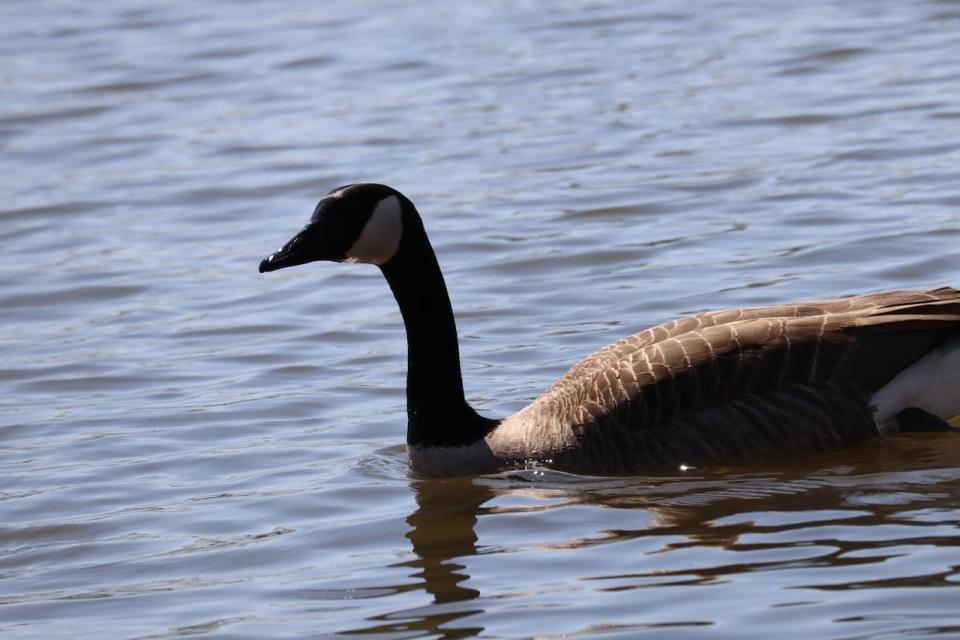How to keep bird poop out of the water? At this Quebec beach, with RC boats
Don't report that lifeguard for goofing off. He's actually doing his job.
This summer, the city of Sherbrooke, Que., is equipping its public beach workers with small remote-controlled boats to whiz around the water in an effort to scare off unwelcome waterfowl.
Every year, seagulls, geese and ducks settle on the waters of Lucien-Blanchard beach and Parc de la Plage‑Municipale beach, leaving droppings that harm the water quality and quickly accumulate on the banks.
Ingrid Dubuc, the director of the city of Sherbrooke's office of the environment, says it's important that the birds be scared away often to keep the water clean and dissuade them from coming back.
"Birds are not bad for the environment. It's the place where they stay that is bad," she said. "We want to scare them away so that they are not too close to where the people go to swim."
Beach workers, who are currently being taught how to use the small boats, will be tasked with ruffling some feathers every morning before the beaches get busy. They will also use the boats during the day if needed.
According to the city, this technique is approved by the Canadian Wildlife Service and workers are trained not to harm the birds.
"We're not hurting them, we're just scaring them away," Dubuc said.

Over the years, the city has used different methods to deter waterfowl, including dogs, but Dubuc said it was hard to recruit for that method this year.
François Salvail, recreation advisor with Sherbrooke's sports department, says using remote-controlled boats is a bird-scaring method that has been tried and tested in several places in Quebec.
It will be piloted by the city this year and then re-evaluated next summer.
As the city works to keep the birds at bay, Dubuc is reminding beachgoers to avoid feeding the animals. In addition to harming their health and the water quality, it encourages them to come back.
She said bird feces contributes to the level of E. coli bacteria in the water. A high number of bacteria results in the immediate closure of the beach until the situation improves.

 Yahoo News
Yahoo News 
